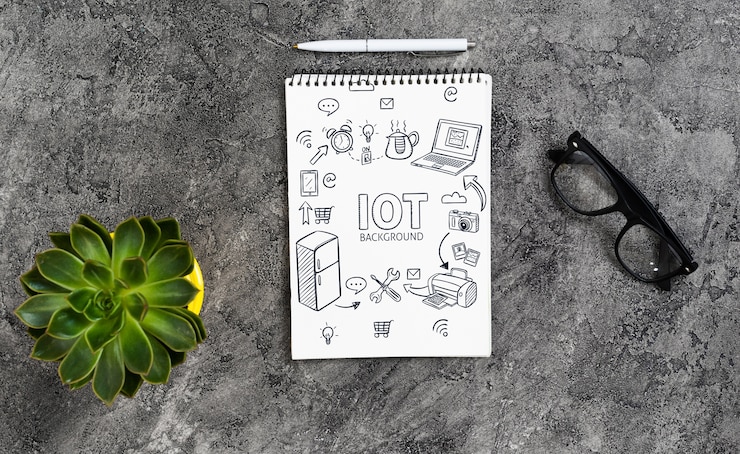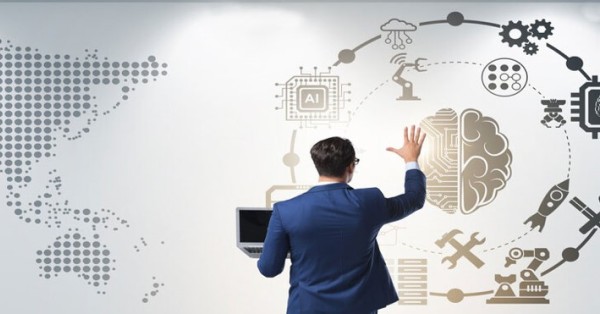The Future of Tech Jobs in an AI-Powered World we are standing at the precipice of a revolution in the world of work. The relentless march of artificial intelligence (AI) is reshaping industries, altering the fabric of our economies, and upending the way we think about labor.
From Silicon Valley to Bangalore, tech hubs around the world are grappling with what this new reality means for their workforce. As AI systems grow in sophistication, their capabilities are expanding beyond simple automation and into domains traditionally reserved for human creativity, problem-solving, and even emotional intelligence. The implications for tech workers are profound, but not necessarily as dire as they may first appear. Rather than a blanket replacement of human labor, AI presents an opportunity for a redefinition of roles, a recalibration of skills, and the emergence of new kinds of work.

The Rising Tide of Automation
At the core of AI’s impact on tech jobs is automation. Machines have always been capable of performing repetitive, menial tasks. However, today’s AI systems are capable of handling tasks that were once thought to require a uniquely human touch—coding, debugging, designing, and even project management. Tools like GitHub Copilot, which assist developers in writing code, or AI-driven testing platforms that can autonomously identify bugs, are reshaping how software is developed.
This rise in automation is giving way to the question: will these tools replace human workers, or will they augment their efforts? The answer, at least in the immediate term, is not so clear-cut. While AI is certainly capable of handling the more routine aspects of programming and development, the creative, strategic, and interdisciplinary aspects of tech jobs remain beyond the reach of current AI technologies.
It’s important to note that this doesn’t spell the end of programming jobs. Rather, it signals a shift in the skillset required. The future of tech jobs with AI will require a new kind of expertise—one that blends technical proficiency with strategic vision and a deep understanding of how AI can enhance, rather than replace, human creativity.
New Roles and Opportunities in the AI Landscape
As AI continues to evolve, it will inevitably create new types of roles that didn’t exist before. These positions will demand a combination of technical expertise, domain-specific knowledge, and the ability to work alongside AI systems. Here are just a few examples of the new opportunities emerging in the tech world:
AI Ethicists
As AI grows more ubiquitous in the workplace, the ethical challenges surrounding its use are becoming more complex. Who is responsible when an AI makes a decision that leads to harm? How can we ensure that AI systems are fair and unbiased? AI ethicists will play a critical role in answering these questions.
AI Trainers
Despite their impressive capabilities, AI systems still require substantial human input to function effectively.
Human-AI Interaction Designers
As AI becomes more integrated into our daily lives, the need for seamless interaction between humans and machines is growing. Human-AI interaction designers will focus on creating intuitive, user-friendly interfaces that allow people to engage with AI in meaningful ways.
Prompt Engineers
One of the most significant breakthroughs in AI has been the development of large language models like GPT-4. These models can generate human-like text, write code, and even solve complex problems. However, to get the best results from these systems, users must craft the right prompts. Enter prompt engineers—specialists who understand the nuances of language models and can design the most effective prompts for specific tasks.
AI Project Managers
As AI tools become more integrated into the workplace, the demand for AI project managers will grow. They will need to bridge the gap between technical teams and business stakeholders, ensuring that AI projects align with organizational goals.
The Recalibration of Existing Roles
While new roles will undoubtedly emerge, the future of tech jobs with AI also involves the recalibration of existing positions. Some tasks that were once handled by humans will increasingly be automated, but this will free up workers to focus on more strategic and creative endeavors.
Developers as AI Integrators
Rather than being replaced by AI, software developers will increasingly take on the role of AI integrators. Developers will need to understand how to work with AI tools and incorporate them into larger systems. They will still be needed to write code, but the emphasis will shift from writing every line of code manually to using AI to enhance productivity and optimize solutions.
Data Scientists as AI Supervisors
AI is largely built on data, and data scientists will continue to play a crucial role in ensuring that AI systems are functioning optimally. However, their role will shift from just collecting and analyzing data to overseeing the AI’s decision-making processes. They will be responsible for ensuring that the AI is interpreting data correctly and generating accurate results.
Designers as AI Curators
In the world of design, AI is already proving its worth by assisting in the creation of graphics, layouts, and even user interfaces. However, rather than replacing designers, AI will empower them to be more creative and efficient. Designers will become curators of AI-generated content, guiding the AI to create designs that align with a brand’s vision and user needs. They will also be responsible for reviewing and refining AI-generated designs to ensure that they meet the required standards of quality and creativity.
IT Support as AI Facilitators
IT support roles will not vanish in an AI-powered world, but they will evolve. Instead of manually troubleshooting software and hardware issues, IT support staff will focus on ensuring that AI systems are functioning properly. They will also provide guidance on how to effectively use AI tools and troubleshoot any problems that arise within these systems.
The Human Touch in an Automated World
While AI will continue to transform the tech industry, there are certain elements of work that remain inherently human. Creativity, emotional intelligence, and the ability to navigate complex, ambiguous situations are areas where humans continue to excel. As such, the future of tech jobs with AI will not just be about replacing human workers with machines; it will be about finding ways for humans and machines to work together in complementary ways.
For example, AI can help design products, but humans will still be required to determine the overarching vision and ensure that the product resonates with users. AI can write code, but developers will still be needed to make decisions about how the code fits into the broader project and to ensure that the end result is aligned with user needs.
The most successful tech professionals in the AI-powered future will be those who can combine their technical skills with creativity, empathy, and strategic thinking. They will be the ones who can leverage AI to solve complex problems, enhance user experiences, and drive innovation.
Preparing for the Future
As the tech industry continues to evolve, it is essential that workers begin to prepare for the changes AI will bring. This means investing in upskilling and reskilling efforts, with a focus on areas like AI integration, ethics, and human-AI interaction. It also means embracing a mindset of adaptability, as the roles and responsibilities in the tech world continue to shift.
Moreover, governments and organizations must play an active role in supporting the workforce during this transition. This includes investing in education and training programs, providing resources for workers to acquire new skills, and ensuring that the benefits of AI are shared equitably.
The future of tech jobs with AI is one of evolution, not extinction. AI will undoubtedly automate many tasks, but it will also create new opportunities and transform existing roles. By embracing this shift, workers can position themselves at the forefront of a rapidly changing industry, ready to harness the power of AI to enhance their work and drive innovation. The key will be adaptability—learning to collaborate with AI rather than fear its rise.
As we look ahead, one thing is clear: AI is not the end of tech jobs. It’s the beginning of a new era, one where humans and machines work in tandem to create a future that is more innovative, efficient, and dynamic than ever before. The future of work in the tech industry may be uncertain, but the possibilities are boundless.








